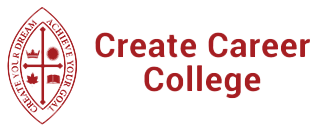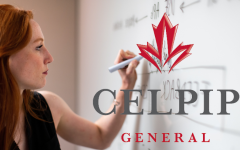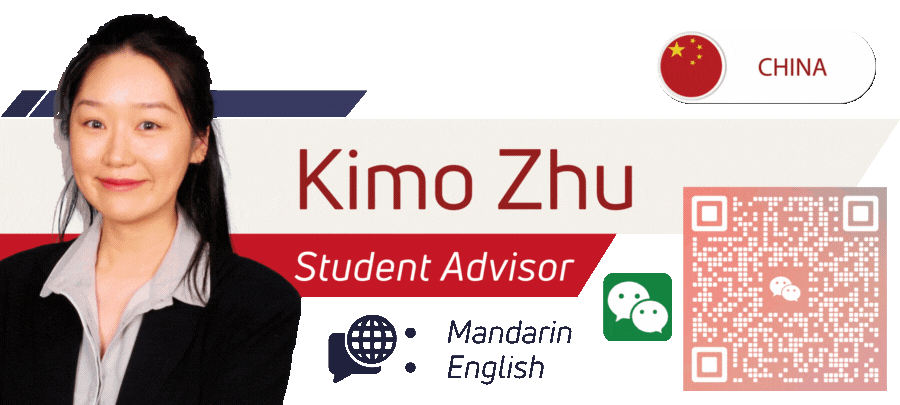TEF Canada Preparation: Guide to NCLC 5 & NCLC 7 in French Speaking
2025-03-31 2025-03-31 16:33TEF Canada Preparation: Guide to NCLC 5 & NCLC 7 in French Speaking

TEF Canada Preparation
Guide to NCLC 5 & NCLC 7 in French Speaking
Preparing for the TEF Canada Speaking Test (Test d’Évaluation de Français) or TEFAQ can be challenging. This guide provides proven, systematic approaches to master the TEF Canada Speaking Test, whether your goal is achieving the NCLC 5 benchmark for Canadian immigration or reaching NCLC 7 in French.
Table of Contents
ToggleTEF Canada Preparation: Challenges in French Speaking Test
With 300+ potential questions that change regularly, many candidates struggle in these aspects:
- Structure coherent responses: Candidates often freeze when confronted with unfamiliar topics or struggling to organize their thoughts under time pressure.
- Maintain a steady flow of ideas: candidates frequently exhaust their prepared material mid-conversation, leaving awkward pauses or repetitive statements.
- Present convincing arguments during Part B’s persuasion phase: Candidates either running out of persuasive points or failing to effectively counter the examiner’s objections.
The TEF exam is designed to test your adaptive communication skills, not your memorization ability. With over 300 questions that are periodically updated, you need a smarter approach.
TEF Canada Preparation: Understand the TEF Speaking Exam Structure
Part A: The Questioning Phase (Interrogation)
- You’ll receive information (e.g., an advertisement, notice)
- Your task is to ask relevant questions to gather missing details
- Common mistakes:
- Asking obvious questions already answered in the prompt
- Running out of questions before time is up
- Asking illogical or irrelevant questions
Part B: The Persuasion Phase (Argumentation)
- You’ll need to convince the examiner (who plays a reluctant participant)
- Common mistakes:
- Countering objections effectively
- Maintaining a natural flow of arguments
- Avoiding repetition
The 4+3 Framework: A Systematic Approach to TEF Canada Speaking Questions
After analyzing hundreds of TEF questions and examiner reports, we’ve identified that all speaking prompts fall into just 4 main categories, each with 3 key themes:
Activities | Work/ Volunteering |
Services | Products |
3 Key Theme
Environment | Humanities | Health |
TEF Canada Preparation: Activities Framework
Any organized event you participate in falls under the “Activities” category – whether it’s courses, social events, sports, outdoor activities, or conferences. Just like writing a comprehensive elementary school essay, all activity-related questions in the TEF exam can be broken down into specific, predictable angles.
Activity Types: Courses | Social Events | Sports/Outdoor | Conferences
Category | Key Elements | Sample Questions (English/French) |
Nature of Activity | One-time event or recurring? | “Is this workshop a single session or weekly series?” / “Cet atelier est-il ponctuel ou hebdomadaire?” |
Timing | Specific dates/time slots | “What dates is the conference held?” / “Quelles sont les dates de la conférence?” |
Location | Address, transportation, nearby facilities | “Is there parking near the venue?” / “Y a-t-il un parking près du lieu?” |
Cost | Pricing, packages, discounts, payment methods | “Do you offer student discounts?” / “Avez-vous des réductions étudiantes?” |
Host Qualifications | Instructor credentials, language capabilities | “What certifications do the trainers have?” / “Quelles certifications ont les formateurs?” |
Participant Requirements | Experience level, language skills, age limits, group size | “Is French fluency required?” / “Faut-il maîtriser le français?” |
Equipment | What to bring vs. provided | “Should we bring yoga mats?” / “Faut-il apporter des tapis de yoga?” |
Safety Measures | Precautions, insurance | “What safety equipment is provided?” / “Quel équipement de sécurité est fourni?” |
Weather Considerations | Cancellation/postponement policies | “What happens if it rains?” / “Que se passe-t-il s’il pleut?” |
Additional Services | Translation, guided explanations, accommodation/meals | “Are English interpreters available?” / “Y a-t-il des interprètes anglais?” |
Enrollment Methods | Online/in-person sign-up | “Can I register by phone?” / “Puis-je m’inscrire par téléphone?” |
Deadlines | Registration cutoff dates | “When is the last day to register?” / “Quel est le dernier jour d’inscription?” |
Cancellation Policy | Refund rules, deadlines | “Can I get a refund if I cancel?” / “Puis-je être remboursé si j’annule?” |
Part B Strategic Notes
- Part A → Part B Transition: Convert your Part A questions into persuasive statements using the same vocabulary
- Question: “Quelles sont les qualifications des instructeurs ?”
→ Statement: “Nos instructeurs sont diplômés avec 10 ans d’expérience”
- Question: “Quelles sont les qualifications des instructeurs ?”
- 3-Step Persuasion Formula:
- Acknowledge concern (“Je comprends vos inquiétudes…”)
- Present solution (“Mais saviez-vous que…”)
- Add urgency (“Cette offre exclusive se termine demain”)
- Vocabulary Recycling:
- Use the same core terms from Part A (locations, prices, schedules) but in declarative form
Examiner’s Objections | Effective Counter-Arguments | Key French Vocabulary |
1. Doesn’t understand the activity | Clarify using official description: “This is a beginner-friendly cooking workshop where…” | atelier de cuisine, adapté aux débutants |
2. Time constraints | Highlight flexibility: “It’s just a 2-hour session this Saturday” | session unique, horaire flexible |
3. Location issues | Emphasize accessibility: “The venue is 5 minutes from Metro X” | à 5 minutes du métro, accès facile |
4. Cost concerns | Offer alternatives: “We have 30% student discounts” | réduction étudiante, paiement échelonné |
5. Lack of experience | Reassure: “No prior knowledge needed – our instructors guide everyone” | aucune expérience requise, encadrement professionnel |
6. Safety worries | Cite precautions: “All equipment is sanitized and insured” | équipement désinfecté, assurance incluse |
7. Weather concerns | Provide solutions: “The event moves indoors if it rains” | annulation reportée, solution de repli |
8. Language barriers | Mention support: “We offer English-speaking assistants” | assistants anglophones, traduction disponible |
9. Complicated registration | Simplify: “Just scan this QR code to sign up in 2 minutes” | inscription en ligne, processus simplifié |
TEF Canada Preparation: Work/Volunteer Framework
Any scenario where you fulfill someone else’s needs (jobs, internships, volunteering) belongs to this category.
Category | Key Elements | Sample Questions |
Job Title | Exact role name | “Quel est le titre exact du poste ?” “What’s the official position title?” |
Employer | Organization type | “Pouvez-vous décrire votre organisation ?” “Could you describe your organization?” |
Work Schedule | Full-time/part-time | “Est-ce un poste à temps plein ou temps partiel ?” “Is this full-time or part-time?” |
Location | On-site/remote | “Le travail est-il sur place ou à distance ?” “Is this on-site or remote work?” |
Qualifications | Language requirements | “Quel niveau de français est requis ?” “What French level is required?” |
Experience | Prior work needed | “Faut-il une expérience préalable ?” “Is prior experience necessary?” |
Compensation | Salary & bonuses | “Y a-t-il des primes de performance ?” “Are there performance bonuses?” |
Work Flexibility | Schedule options | “Peut-on ajuster les horaires ?” “Is schedule flexibility possible?” |
Key Persuasion Points (Part B)
When promoting a position, emphasize:
- Employer reliability
- Schedule flexibility
- Convenient location
- Permanent contract options
- Simple job responsibilities
- Minimal application requirements
- Competitive compensation and benefits
TEF Canada Preparation: Services Framework
Services involve others fulfilling your needs (opposite of work/volunteer scenarios). The critical differentiator: You must first clearly define your requirements before asking service-related questions.
Key Mistakes to Avoid
- Asking generic “activity-style” questions (location/hours/price) first
- Failing to specify customized needs for accurate quotes
- Requesting irrelevant information (e.g., physical address for mobile services)
- Stating Requirements (Essential First Step)
- “Nous avons besoin d’un réparateur d’ordinateurs pour notre école primaire avec disponibilité les mercredis après-midi”
• “Je cherche un service de nettoyage hebdomadaire pour un 4½ à Verdun”
- Service Inquiry Structure
- Disponibilité
• “Pouvez-vous intervenir en urgence les weekends ?”
• “Quels sont vos créneaux disponibles en décembre ?” - Zone de service
• “Desservez-vous les quartiers périphériques ?”
• “Proposez-vous des déplacements en dehors de Montréal ?” - Détails du service
• “Utilisez-vous des produits écologiques ?”
• “Quelle est votre méthodologie pour ce type de réparation ?” - Options supplémentaires
• “Incluez-vous la fourniture des pièces détachées ?”
• “Offrez-vous un service de suivi après l’intervention ?” - Tarification
• “Quel est votre tarif pour une intervention standard ?”
• “Proposez-vous des forfaits mensuels avantageux ?”
Two-Step Approach for ServicesPart B Persuasion Strategy
When promoting services:
- Highlight Customization:
“Nous adaptons chaque leçon au niveau de l’élève”
(“We customize each lesson to the student’s level”) - Emphasize Convenience:
“Tous nos tuteurs viennent à domicile”
(“All our tutors provide in-home service”)
Common Examiner Objections & Responses:
- “Too expensive” → “Tarifs compétitifs avec garantie de résultats” (“Competitive rates with results guarantee”)
- “No weekend availability” → “Nous avons des créaux en soirée” (“We offer evening slots”)
TEF Canada Preparation: Products Framework
Core Definition
Product questions involve transactions of physical goods (not services), with two key aspects:
- Tangible Items: Housing, vehicles, electronics, sports equipment, cultural goods
- Transaction Types: Purchase, sale, rental, exchange, lease
Product Specifications
For All Products:
✔ Functionality ✔ Dimensions ✔ Color ✔ Condition (new/used)
✔ Brand ✔ Model ✔ Included accessories
Category-Specific Details:
Real Estate | Vehicles |
Neighborhood | Fuel type (electric/gas) |
Property type | Transmission (auto/manual) |
Natural light exposure | Mileage |
Soundproofing | Optional features |
- Transaction Terms
- Purchase Conditions
- Type: “Is this rent-to-own?””Est-ce une location avec option d’achat ?”
- Inspection: “Can I test the appliance before paying?””Puis-je tester l’appareil avant paiement ?”
- Financial Aspects
- Pricing: “Is the price negotiable?””Acceptez-vous une négociation ?”
- Payment: “Do you offer installment plans?””Proposez-vous un étalement ?”
- Legal Protections
- Warranty: “Does the warranty cover accidental damage?””La garantie couvre-t-elle les dommages accidentels ?”
- Returns: “What’s your return policy?””Quelle est votre politique de retour ?”
Part B Persuasion Strategies
Key Selling Points:
- “This electric car saves $2000/year in fuel costs”“Ce véhicule électrique vous fera économiser 2000$/an en carburant”
- “The apartment is 5 minutes from a metro station”“L’appartement est à 5 minutes d’une station de métro”
Handling Objections:
✗ “Too expensive” → “We offer zero-interest financing”
✗ “Poor condition” → “A professional inspector certified its quality”
Boost Your TCF Canada Score with CCC French Courses!
Preparing for the TCF Canada exam requires structured learning and expert guidance—and that’s exactly what our CCC French Courses offer! Whether you’re starting at beginner or aiming for CLB7+ (B2), our programs are designed to help you succeed.
Why Choose CCC French Courses?
🍁 Tailored for TCF Canada – Our curriculum aligns with the exam’s format, scoring, and key focus areas.
🍁 Native Instructors – Learn from certified native Canadian French teachers who specialize in TCF Canada exam preparation.
🍁 Flexible Learning – Online or in-person classes with morning/evening batches.
🍁 Mock Tests & Feedback – Regular practice exams with detailed score analysis.
Beginner French Course (Beginner to A2)
This beginner level French course is designed for students starting their French language journey. It focuses on building a strong foundation in French by teaching familiar, everyday expressions and simple statements to meet concrete needs.
Evening Classes
Wednesdays and Thursdays |
From 6:00 pm to 9:00 pm (PST)
🍁 2 classes per week
🍁 $405 per month | $25 per class*
🍁 24 hours per month | 3 hours per class
Registration Starting Date: 2 April, 2025
* Enjoy this promotion price when you enroll for 10 months or more; please contact the Admissions Department for further discounts and group deals
Intermediate French Course (A2 - B1 )
This intermediate level French course is designed for students who have mastered the basics and want to enhance their fluency. The focus is on expanding vocabulary, improving sentence structures, and developing confidence in everyday conversations.
Mondays, Tuesdays and Wednesdays |
From 6:00pm to 8:00 pm (PST)
🍁 3 classes per week
🍁 $405 per month | $25 per class*
🍁 24 hours per month | 2 hours per class
Registration Starting Date: Every Monday
(Drop in-available)
* Enjoy this promotion price when you enroll for 10 months or more; please contact the Admissions Department for further discounts and group deals
Advanced French Course (B1 to B2)
This advanced level French course is designed for students who have mastered the basics and want to enhance their fluency. The focus is on expanding vocabulary, improving sentence structures, and developing confidence in everyday conversations.
Mondays, Tuesdays and Wednesdays |
From 6:00pm to 8:00 pm (PST)
🍁 3 classes per week
🍁 $405 per month | $25 per class*
🍁 24 hours per month | 2 hours per class
Registration Starting Date: May 19, 2025
* Enjoy this promotion price when you enroll for 10 months or more; please contact the Admissions Department for further discounts and group deals
Related Posts
CELPIP Listening Strategies: 5 Tips for High Scores
CELPIP reading practice test (with answer)
What’s a Good TEF Canada score?
CELPIP Writing Samples with Answers (Task 1 & Task 2)
Latest News
CCC Admission Department
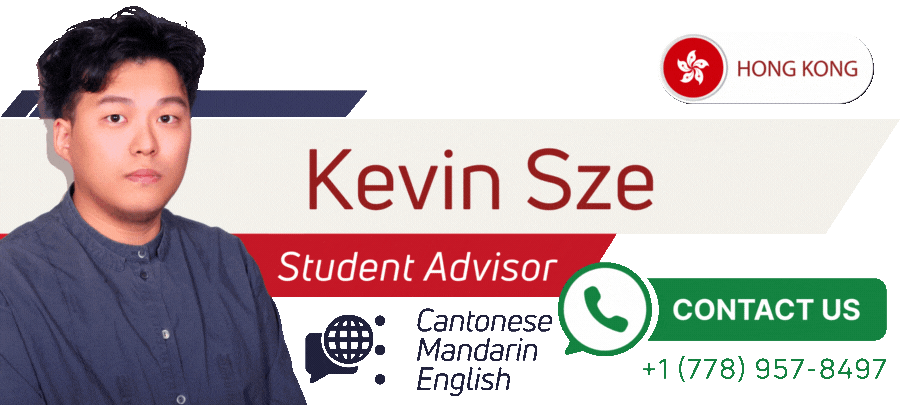

Latest Posts
- CELPIP Listening Strategies: 5 Tips for High Scores

- How to Archive B2 Level French in TEF Canada Speaking with Examiner Insights & Strategies



- TEF Canada Preparation: Guide to NCLC 5 & NCLC 7 in French Speaking



- CELPIP reading practice test (with answer)


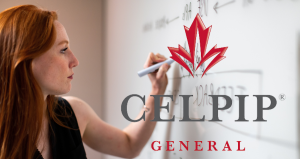
- What’s a Good TEF Canada score?



- CELPIP Writing Samples with Answers (Task 1 & Task 2)



- Top 12 Highest Paying Digital Marketing Jobs



- Francophone Community Immigration Pilot | New Path to Canada PR in 2025



